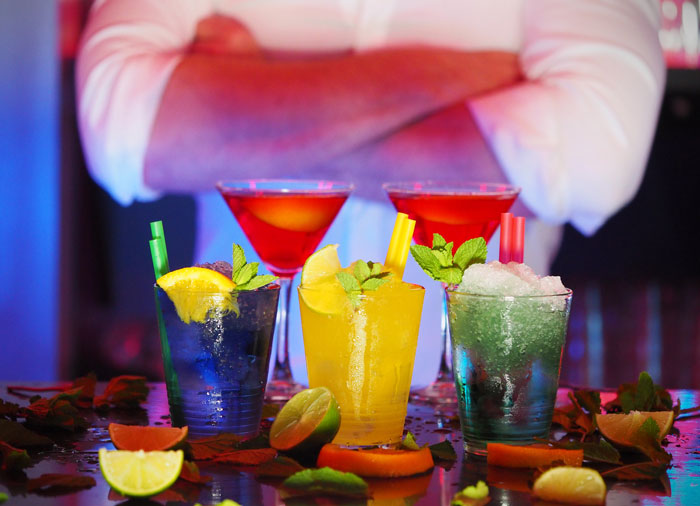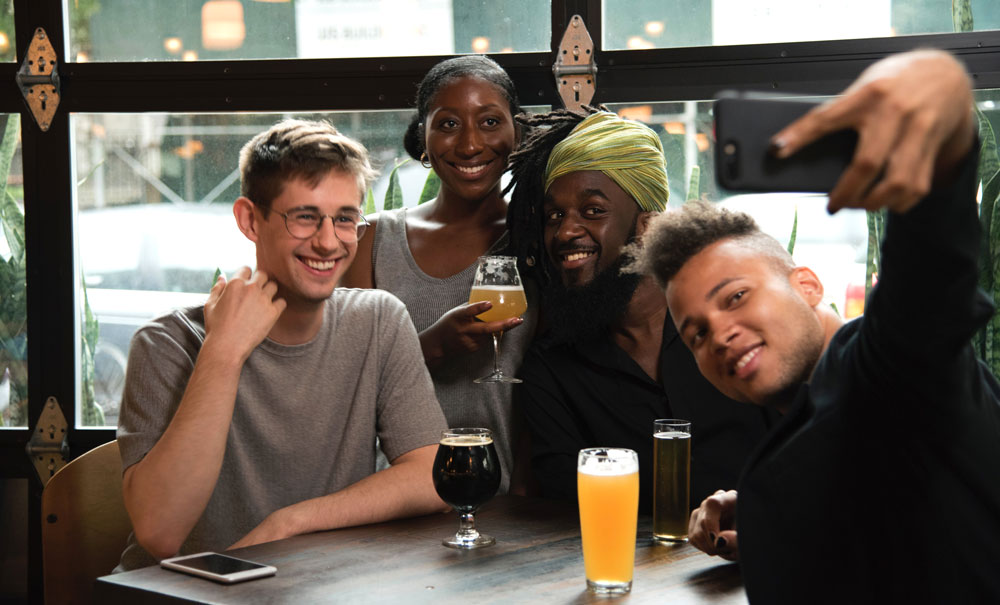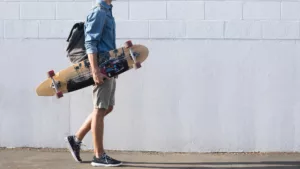Imagine this: meeting up with the guys on Friday night after a long work week, safely driving yourself home after a few hours, getting into bed tired but feeling healthy, saying goodnight to your wife without any slurred arguments, and waking up in the morning feeling refreshed — no hangover and memory fully intact. This is what going to a bar while sober might be like.
You still got to decompress with the guys and maybe give Awkward Andy a hard time for his sub-par lady skills. You woke up feeling good. And you didn’t have to fight your friends for your keys or pay the late-night spiked Uber prices just to try and seem alert while listening to your driver go on about his new hobby.
Proceed with Caution
Let’s amend that earlier statement after a necessary reality check. This is what going to a bar while sober might be like if you’re strong in your recovery. That comes with having completed treatment, working a program, and staying alert and comfortable in what is essentially a playground of triggers.
Bars are enormous triggers for relapse.
They’re likely the location of some of the worst nights for many recovered alcoholics. Those who are still in the early stages of recovery or have treaded a rocky road with relapse should avoid the bar scene. However, if you do have a strong foundation in your recovery, are working a program, and have solid resources and support around you, there’s no reason you can’t socialize and enjoy the night with friends.
Keep in mind that our brains are wired to practice selective memory as a survival tactic, especially when coping with trauma. Because of this, the urgent and heavy reasons for getting sober might become clouded over time. If you’re far into your recovery and distanced enough from the start of your journey, you may forget what rock bottom felt like, thus removing severity from the why? of your recovery. This may provoke thoughts like, “One drink can’t hurt. I can handle it.”
Long story short: bars can be huge triggers for recovered alcoholics, no matter what stage of recovery you’re in.
Tips for Going to a Bar While Sober
All that said, you don’t have to live your life in fear after getting sober. Many recovered alcoholics are able to enjoy fun sober nights with their friends and family in bars and restaurants. It’s a good idea to hang onto these tips if you’re thinking about going to a bar while sober:
Suggest a Place with Good Entertainment
If you’re going to a bar with friends who aren’t in recovery, it’s a good idea to suggest a bar with other things to do than sit at a high-top watching your friends throw back shots. Find a place with karaoke, old-school arcade games, or pool tables so you can get up and distract yourself from the barrage of alcohol. Plus, you’ll probably walk away with bragging rights at the end of the night having beat your friends because you’re the only one sober enough to shoot straight.
Drive Yourself
Driving yourself means you’re on your own time. If the environment starts to get a little too stressful, you’re able to leave without waiting for someone else to sober up or feeling bad for making your carpool partner leave early too.
Find a Non-Alcoholic Drink You Love
While there are many things that might induce anxiety for someone going to a bar while sober, not knowing what to order is a big one. Fortunately, there are a plethora of non-alcoholic drinks that all bartenders will know how to make. Finding one or a few drinks that you love will take away that anxiety so you can better enjoy your time out with friends. Take a look at this list of mocktails for some inspiration.
Be Confident When Saying No
You’re really the only person who can decide if bars are off-limits for you. If you feel that a bar event is just too triggering for you, it’s perfectly okay to decline the invite. The important people in your life should be supportive of your recovery. They’ll understand that one night of socializing isn’t worth risking your sobriety. You also shouldn’t feel the need to explain why you’re declining if you don’t want to. It’s normal to put yourself first; it doesn’t make you a bad person. In addition, saying no and putting your sobriety first will help to build your confidence in potentially triggering situations.
I Get By with a Little Help from My *Local Bar Owner*
In the past, non-alcoholic drinks could be found at the very back/bottom of the menu — if at all. The placement comes from profitability logic. Non-alcoholic drinks are typically less expensive than alcoholic cocktails. The bar’s goal is to make money, so the bar owner isn’t going to give prime menu real estate to the drinks that will make him less money.
Unfortunately, such back-of-the-line placement can easily make customers seeking to order these drinks feel trivial. Menus can be very psychological. Customers can feel more or less important depending on what they’re associated with on the menu. For example, ordering the “Summer Favorite: Pan-Seared Filet Mignon with Exotic Herb Sauce” that sits in bold calligraphy at the top of the first page of the menu might make you feel important. Ordering the Shirley Temple from the very back of the menu might make you feel negligible.
This can be especially true if the customer has struggled with substance abuse and likely feels the consequential shame from the stigma of their disease.


 Fortunately, progressive bar owners are making changes. Menus are starting to put more weight and celebration on non-alcoholic drinks, partially in response to the growth of this new sober movement. The changes make it a lot easier for people going to a bar while sober.
Fortunately, progressive bar owners are making changes. Menus are starting to put more weight and celebration on non-alcoholic drinks, partially in response to the growth of this new sober movement. The changes make it a lot easier for people going to a bar while sober.
One NYC cocktail bar designated the first page of their drink menu to non-alcoholic drinks. The bar’s beverage director states:
“If you’re a non-drinker and you’re coming into a cocktail bar, maybe that feels uneasy for you. When you open our menu and the non-alcoholic drinks are the first thing you see, it’s going to be a comforting relief.”
Another bar owner in Washington D.C. explains his plan to integrate his non-alcoholic drinks with the rest:
“[Non-alcoholic drinks] shouldn’t be an addendum. People shouldn’t feel dumb or have to flip to the back page to order.”
Trying new, innovative mocktails while schooling your friends at pool can be fun. And waking up with full memory and no hangover is great. Add in these progressive sober-friendly bar menus and you’ve got yourself a grand old time! Just remember to not push yourself into anything your recovery isn’t ready for.
If you or someone you know is struggling with alcohol or drug abuse, our addiction counselors are available 24/7 by phone: 714-203-2708*
*all calls are answered and operated by New Start Recovery




